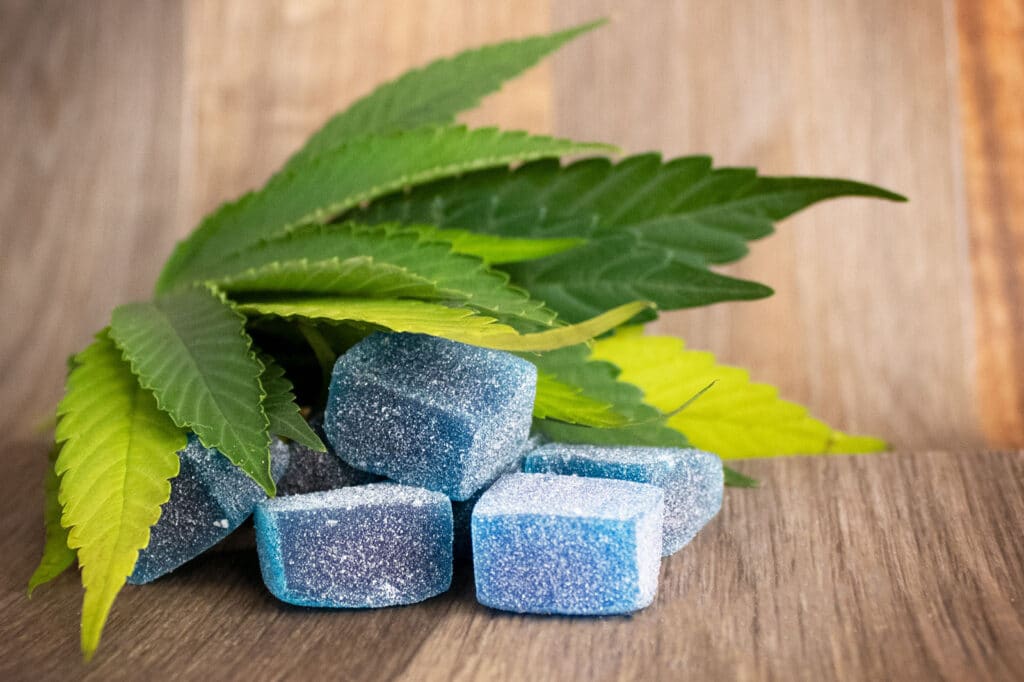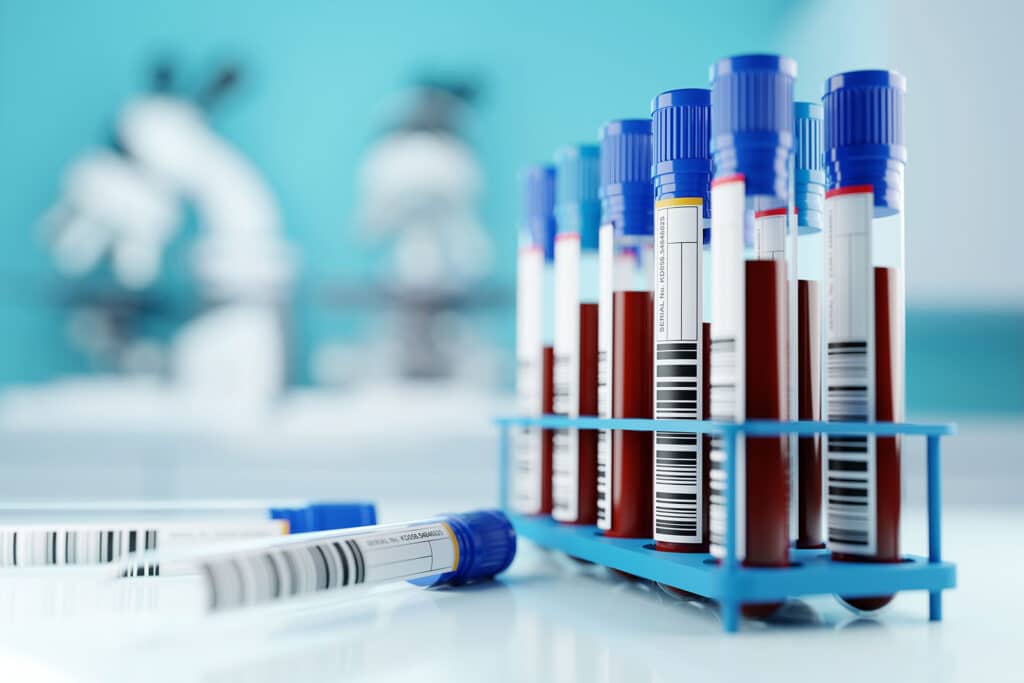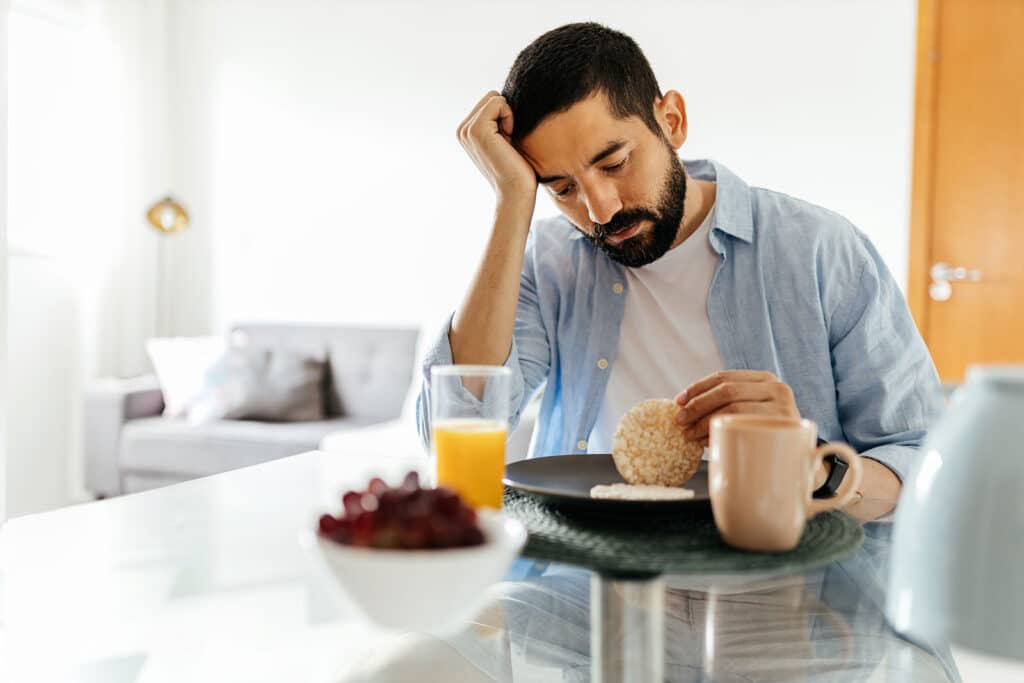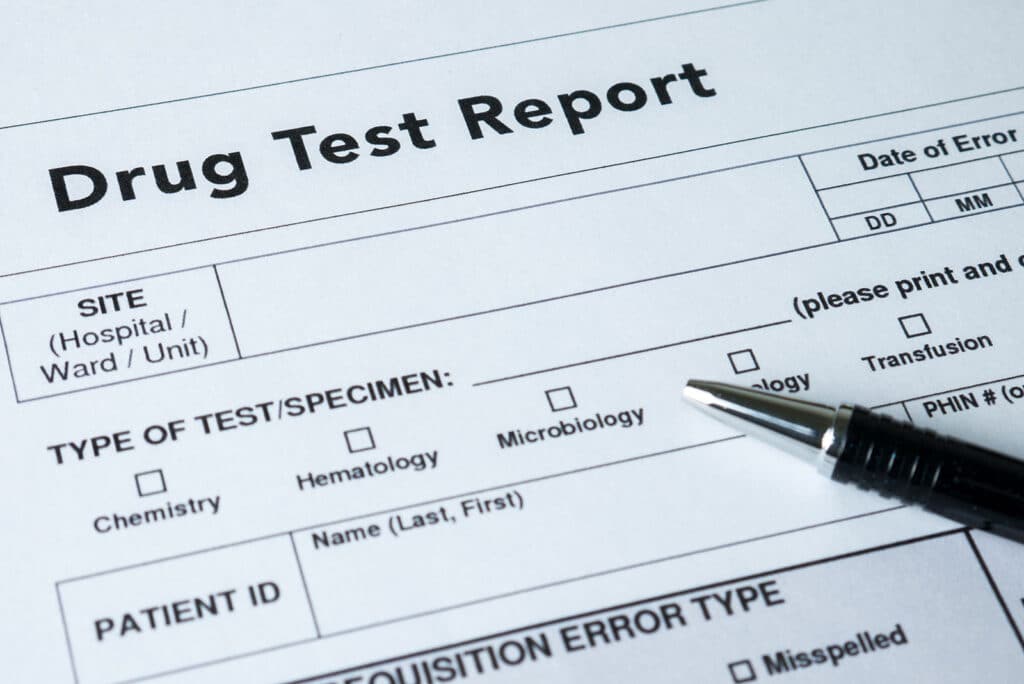The effect edibles have on the body, aka the ‘high’ they produce, tends to fade rather quickly. Yet, you may be surprised to know that the remains of the drug itself can stay in your system for weeks, sometimes even longer.
It can take weed anywhere from a couple of hours to a full 90 days to get eliminated from your system. So, how long do edibles stay in your system?
Keep reading to find out.
Table of Contents
Edibles: A Quick Overview
Edibles refer to a wide range of food products infused with cannabis, which is the plant itself and part of the Cannabaceae family.
They may also contain marijuana, which is the same thing as weed. Both terms refer to the recreational drug derived from the dried flowers or leaves of the cannabis plant.
What categorizes these food products as ‘edibles’ is that they contain cannabidiol (CBD) and delta-tetrahydrocannabinol (THC).
THC is the primary chemical component of marijuana responsible for producing the high that users experience.
On the flip side, CBD is used to balance the effects of THC. On its own, CBD is commonly used to treat depression, anxiety, and seizures.
Some common edibles that can be homemade or store-bought include:
- Gummies or candies
- Pastries
- Beverages
- Products like butter or syrup
- Baked goods, often brownies
- Lozenges

How Long Do Edibles Take to Kick In?
Edibles usually take anywhere from 30–60 minutes to kick in. They take longer to take effect than smoking weed because edibles need to pass through the digestive system first before entering the bloodstream and the rest of the body.
When smoking marijuana, however, the effect is quick and instantaneous. Plus, users can feel the effect for several hours.
Yet, inhaling it through the lungs puts you at greater risk of several respiratory problems.
You don’t have to worry about that with edibles.
What you do have to worry about, however, is the sense of delayed gratification you get when consuming edibles.
As mentioned above, edibles take longer to take effect because they need to pass through the digestive system first. Then, they make their way to the liver where the psychoactive elements are broken down and released into the bloodstream.
That takes about an hour or two, depending on how much you consumed, between consuming the edible and feeling high.
That said, certain edibles, such as chocolates, gummies, and baked goods, can give you a much faster effect for a couple of reasons.
The first reason is that they melt in your mouth. Then, your saliva works to deliver the chemicals to the bloodstream much quicker.
The second reason is that they’re easier to digest. This speeds up the process of breaking down the active ingredient, providing you with the psychoactive element at a faster pace.
Regardless of the kind of edible you’re consuming, the effect usually lasts an average of about 12 hours.
How Does the Body Process Edibles?
Edibles find their way into your system via the digestive tract where the cannabis eventually makes its way to the liver. There, your body breaks down its chemical components and converts the traditional delta-9 THC to something more potent, 11-hydroxy THC.
11-hydroxy THC is the chemical responsible for delivering a more intense psychoactive effect when compared to smoking marijuana.
For many people edibles make them feel safer. They prefer the appeal of consuming food products infused with cannabis over the idea of vaping the drug into the lungs or inhaling the smoke from a marijuana cigarette.
Plus, most edibles taste pretty good as opposed to the foul odor of cigarette smoke. Then, there’s the fact that they’ve been legalized in most states and are easy to get hold of, making them even more inviting to the public.
When edibles are ingested, the body takes in less THC compared to smoking. Yet, surprisingly, the side effects last longer.
Some people experience a high that can last for one or two hours. Others can feel the effects linger on, lasting up to 24 hours, sometimes even longer.
This mainly depends on the strain of marijuana used to make the edibles and the amount consumed.

How Long Do Edibles Stay in Your System?
Because your body takes longer to process and metabolize edibles, the duration they can remain in your system depends on several variables, including the strain consumed, the quantity, and the user’s tolerance to the drug.
It also depends on the drug’s half-life. For example, some strains of marijuana have a half-life of three days, whereas others can last up to two whole weeks.
Yet they can remain in your system long after their effects have worn off. Again, depending on how much you consume and the quality of the strain, the chemicals in edibles can remain in your bloodstream for a few hours and last up to 90 days.
By comparison, the effect of a marijuana cigarette can linger for up to 3 days.
Another factor to take into consideration is that the exact length is directly linked to the frequency of use.
So, for example, if you consume edibles regularly, they’re more likely to stay longer in your system compared to someone who only consumes them occasionally.
This is because the chemicals never get a chance to leave your system. Another reason is that regular users usually need to increase the dosage because your body quickly adapts, which leads to tolerance.
So, after a while, you start to feel that you need to keep increasing the dosage to get the same high. This means you’ll keep consuming more and more edibles or you’ll add more marijuana to your food products.
Either way, it can increase the risk of various health issues and addiction. It can also result in a long list of unfavorable side effects.

Common Side Effects of Edibles
Although, we should mention that because edibles tend to take longer to kick in, they often contain larger amounts of weed. This can cause several problems, such as an overdose. After all, you have no way to determine how much THC you’ve consumed.
So, we recommend waiting 24 hours before taking another edible to avoid accidentally increasing your dosage by too much.
Another concern is mixing edibles with alcohol or other drugs. The side effects can vary from one person to the next, and you have no idea whether you’ll feel a calm bliss or a rush of nervousness and paranoia.
The top side effect of users who consume edibles is heart-related symptoms. They’re mainly associated with a higher risk of increased heart rate and blood pressure, and heart failure.
It’s important to note that not all marijuana products contain similar THC dosage, quality, or chemical makeup. That’s something to keep in mind when buying your next batch of edibles.
Check out some of the common side effects you may encounter after consuming edibles:
- Relaxation
- Sedation
- Drowsiness
- Dry mouth
- Nausea or vomiting
- Heart problems
- Anxiety
- Paranoia
- Impaired judgment
- Loss of coordination
- Bloodshot eyes
- Difficulty with memory and concentration
- Hallucinations

Detection Times of Drug Tests for Edibles
The THC in edibles does show up on drug tests, just as it does with any other product that contains this chemical compound. Consuming them through food products doesn’t change the fact that they’ll enter your system and show up on drug tests.
Also, bear in mind that because THC is processed differently in the body when eaten than when smoked, edibles actually last longer in your system.
Factors that Affect Detection Times
It’s worth mentioning that there are factors that can impact the length of your detection window, including the following:
- Body mass
- Your general state of health
- Hydration levels
- Activity level
- Type and amount of edibles you consumed
- Age and gender
- The length of time you’ve been using edibles
Possible Detection Windows
Here are some detection windows that will show you how long your body will test positive for marijuana after consuming edibles:
- Urine: THC from edibles can be detected in urine samples from 3–30 days, depending on how much you consumed
- Blood: THC from edibles can be detected in blood tests for 3–4 days after consumption
- Saliva: traces of edibles can be detected in saliva for up to 3 days after consumption
- Hair: traces of THC from edibles can be detected in hair follicles for up to 90 days, much like most other drugs
Substances that Can Give a False Positive
Some non-cannabinoid medications have been known to cause a false positive when testing for marijuana.
- Nonsteroidal anti-inflammatory drugs, such as ibuprofen and naproxen
- Efavirenz, a drug used to treat HIV
- Proton pump inhibitors like pantoprazole
- Vitamin B2, or riboflavin, supplements are often synthesized from hemp oil, which contains trace amounts of the chemical found in marijuana
- Snack bars that contain small amounts of hemp seeds for added protein

Final Thoughts
Edibles are increasing in popularity as a fun alternative to smoking marijuana. Yet, it’s imperative that you know how long edibles can stay in your system so that you can make smart choices.
Thanks to their slow metabolization, their effect can last for hours. Yet, even after the high wears off, the chemical compounds in the edibles can last as much as 90 days in your body.
Keep in mind that there’s always a certain amount of risk when using edibles. So, take the time to familiarize yourself with the different strains, types, and dosages.
Also, try to maintain a well-balanced lifestyle to ensure your body is healthy enough to handle the drug and its possible side effects.

